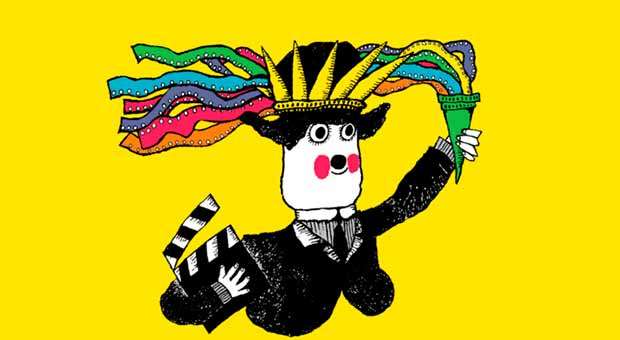New York City, also known as “the big apple”, will host Havana Film Festival from April 3 through 11. This polyphonic city, which has held some of the most important cultural movements of all times, will exhibit 24 Cuban films as part of the 15th edition of Havana Film Festival. The film Conducta, produced by Ernesto Daranas – awarded with the Biznaga de Plata at Malaga’s Spanish Film Festival– will open this event, which aims at showing contemporary audiovisual works from Latin America and represents a window to take a look at the latest Cuban films.
The project by the American Friends of the Ludwig Foundation of Cuba (AFLFC), an organization with no profit motives in mind in charge of creating intercultural links between Cuban and the US, has arranged the exhibit of 45 films from Cuba, Argentina, Brazil, Chile, Colombia, Mexico, Peru, Uruguay, Costa Rica and Venezuela, as an invitation to appreciate Latin American culture in the cradle of Martin Scorsese, Stanley Kubrick and Woody Allen.
The sample includes films such as Esther en alguna parte (2013), by Gerardo Chijona; Melaza (2012), by Carlos Lechuga, and Se vende (2012), by Jorge Perugorría, which have been enrolled in the official competition, as well as the documentary Hay un grupo que dice (2014), by producer Lourdes Prieto. The selection, made by Luciano Castillo, director of the Cuban Cinematheque, also pays homage to the Cuban Film Institute (ICAIC by its acronym in Spanish) on the occasion of its 55th anniversary.
However, the event also has room for young Cuban producers. The Quad Cinema in Manhattan and movie theaters in Queens and the Bronx will display films such as Camionero (Sebastian Miló, 2012), Tardepara Ramón (Daniel Chile, 2013) and La Trucha (Luis Ernesto Doñas, 2013), which will be presented by María Julia Grillo, academic director of the International Cinema School of San Antonio de los Baños.
Producers Kiki Álvarez (Jirafas, 2013), Gerardo Chijona (Esther en alguna parte, 2013), Carlos Lechuga (Melaza, 2013), Jorge Perugorría (Se Vende, 2013); as well as producer Claudia Calviño (Juan de los Muertos, 2010) and casting director Libia Batista, will invite the audience to reflect on the latest trends of Cuban cinema during the a meeting entitled “New horizons in the Cuban contemporary cinema: an open dialogue”.
The main purposes of the sample of Cuban films that are not in competition are: showing the great diversity that characterizes and defines Cuban culture and giving a general overview on the audiovisual scenario of the country. This simple includes documentaries such as 100 sones cubanos, by Edesio Alejandro and Rubén Consuegra; Buscando a Chano Pozo (1987), by Rebeca Chávez; Cuatro mujeres, cuatro autores (1983), by Luis Felipe Bernaza; Chamaco (2011), by Juan Carlos Cremata; De cierta manera (1974), by Sara Gómez; among others.
One of the most emotive spaces of the event will pay homage to producer Daniel Díaz Torres, who passed away recently in Havana. The Festival has included some of his films as Hacerse el sueco (2000) and La película de Ana (2012). Once the screening of the films is over, the event will grant the Havana Star Award in the categories of Best Film, Best Director, Best Script, and Best Documentary.
This April 3, New York City, considered by many a mecca for contemporary culture, will be open for cinematographic art from the continent for discovering cultures and aesthetics; stories and sensibilities; in a city where Harlem was reborn once from the visual arts and literature, where perhaps Langston Hughes wrote: “But it was there then, In front of me, Bright like a sun— My dream. And then the wall rose, Rose slowly, Slowly, Between me and my dream..”










